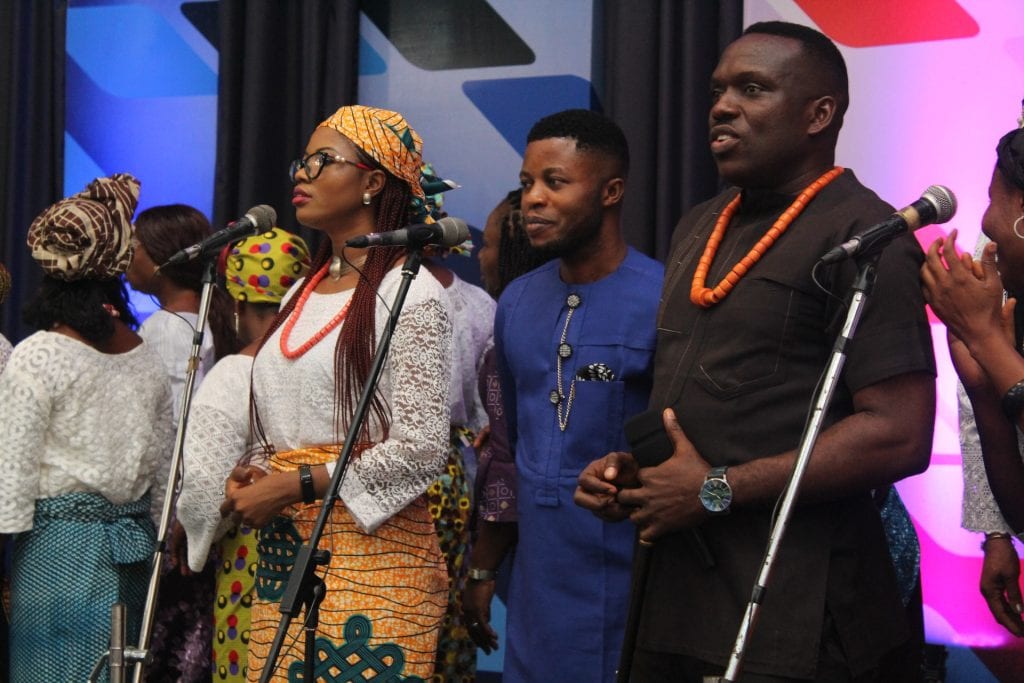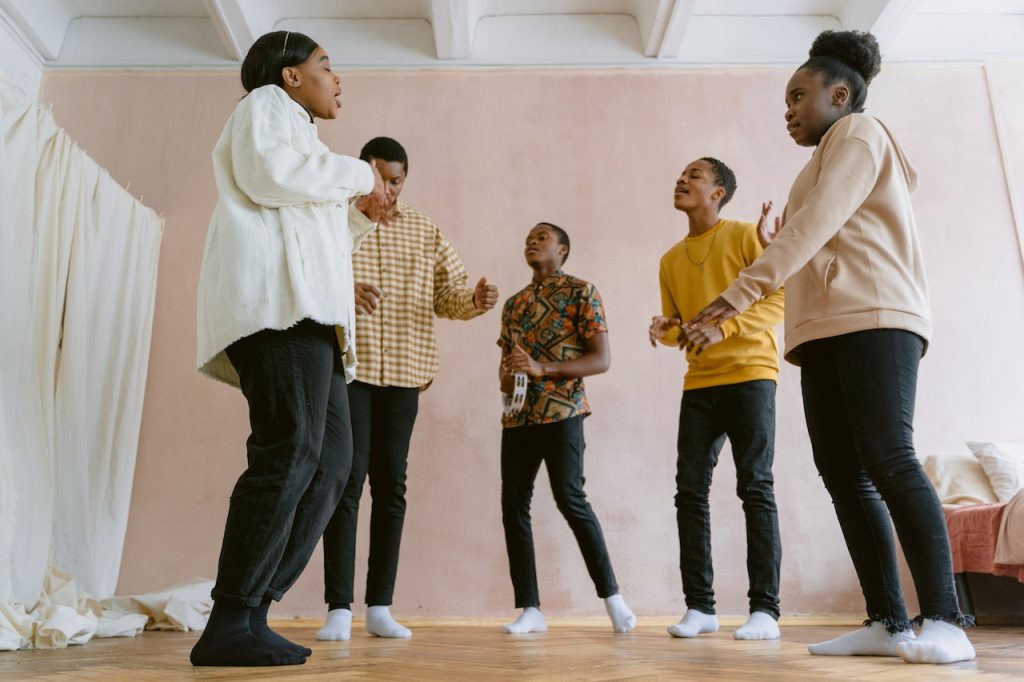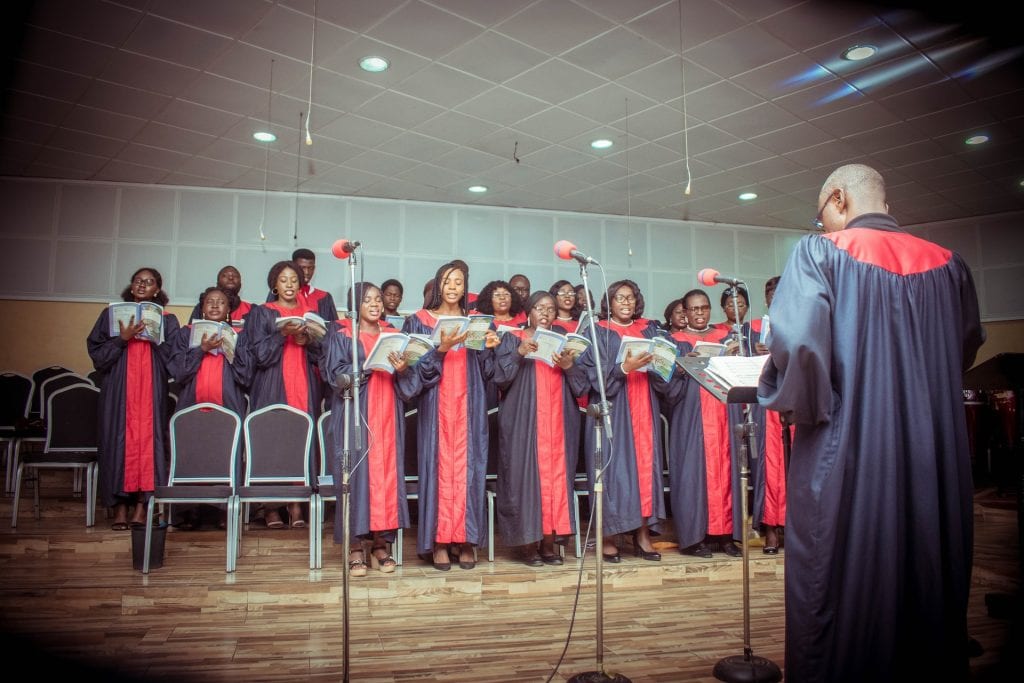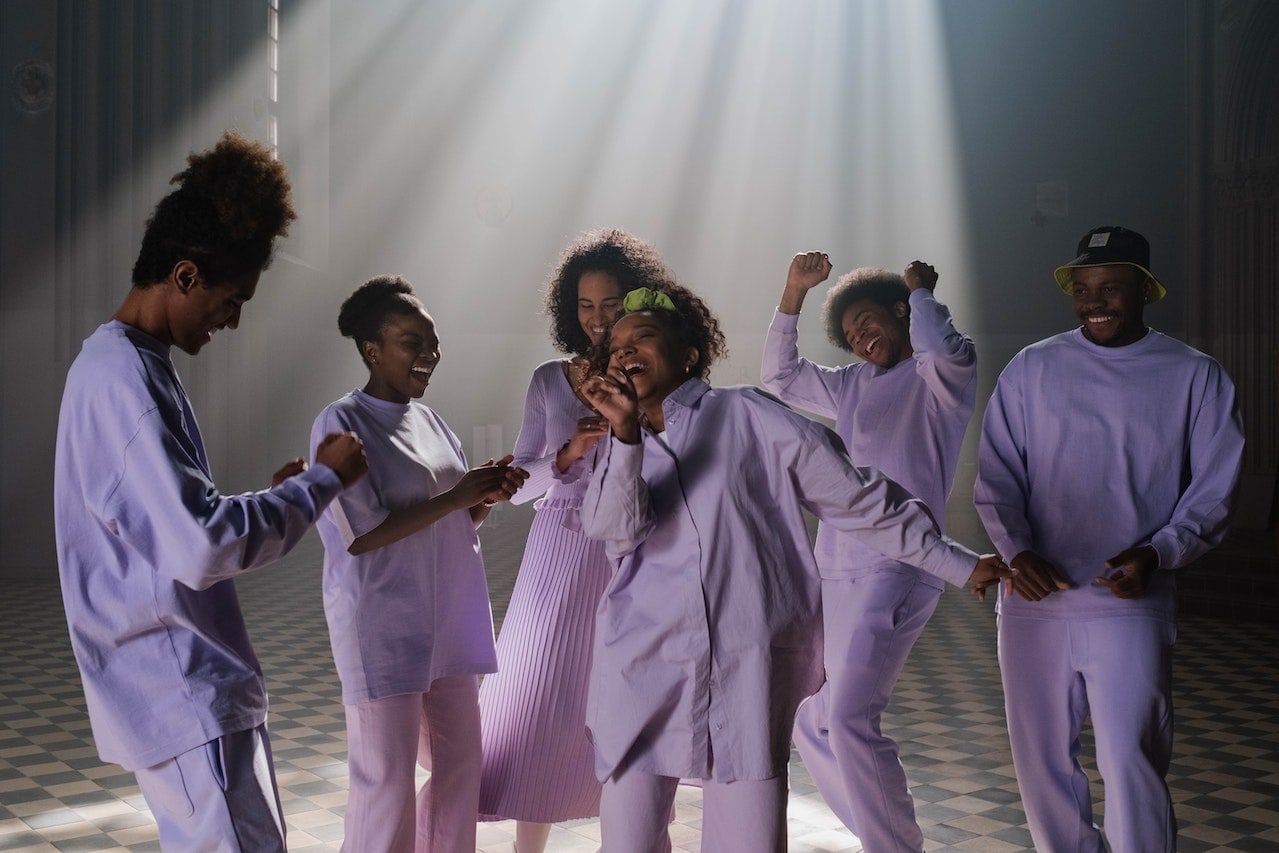Five Ways to Center Black Creatives in Your Choir
Through choral music we have the opportunity to share stories, voices, and music of so many cultures and people. During this week of Martin Luther King Jr. Day and as we approach Black History Month next month, it is especially important for us in the choral world to examine the ways we center Black creatives in choir.
How are we working against the systematic racism that has pushed aside or buried the voices of Black composers, singers, and conductors? How are we lifting up and celebrating their work?
With this in mind, I present to you five ways to center Black creatives in choir for your consideration:
- Program Choir Repertoire by Black Creatives
- Listen to and Watch Black Singers
- Study Black Conductors
- Examine the Work of Black Composers
- Discuss the Struggle for Diversity in Choral Music

Whose Voices Are You Centering?
In a previous post, I talked about the importance of windows and mirrors in our repertoire. With windows, singers catch a view of someone else’s experience. With mirrors, singers see their own culture reflected, helping to build their identity and have a sense of belonging. By centering Black voices in our choirs, we allow singers to catch a glimpse of the experience of Black creatives. By centering Black voices in our choirs, we let our students know that Black creatives are valued and important and an intrinsic part of the choral canon.
This semester, our treble and bass ensembles are performing music by Black composers, and as such this blog will be examining the work of many Black composers over the course of the next two weeks. I am so excited to dig into this work and highlight some incredible choral music. Here are five ways that I will be centering Black creatives with my choirs:
1. Program Choir Repertoire by Black Creatives
This first strategy to center Black creatives in choir is quite simply to program choir repertoire by Black musicians. Program music that has been composed, arranged, and/or performed by Black musicians. Not sure where to start? Here are some great resources to help with your programing:
- Marques L. A. Garrett has compiled an incredible resource: a working list of the non-idiomatic choral music of Black composers. Visit his website here.
- Blake Morgan’s list of 31 Black Choral Composers that Should Be On Your Programs and Playlists includes composers from the 16th Century to today.
- The Composer Diversity Database is constantly being updated and features composers from historically marginalized croups who have consented to being a part of the database.
- Early Music America has compiled Resources for Diversity in Early Music Repertoire here.
As you are programming, keep in mind the variety of Black cultures and experiences. Consider how you can program a balance of idiomatic and non-idiomatic choral music. Yes, we want to feature gospel music and spirituals and jazz, but we also want to feature motets and choral art songs and anthems created by Black composers.

2. Listen to and Watch Black Singers
Maybe you haven’t programmed any music created by Black musicians this semester. There are still ways to intentionally center Black creatives in your choir, like listening to or watching Black choirs, vocal ensembles, and/or soloists.
- Performing Kéramos by James Mulholland? Watch The Aeolians of Oakwood University led by Jason Max Ferdinand.
- Studying The Sound of Music? Listen to Audra McDonald’s performance of Climb Every Mountain.
- Focusing on a cappella music? Watch Naturally 7”s performance on The World’s Best.
Nearly everything you would like your choir to listen to or watch has a version that features Black performers. If you search with intent, you have the opportunity to subtly (or not-so-subtly – your choice!) center Black musicians in your choir.
Assigning a full choral performance like this one to your students? Consider using my free concert listening worksheet! Sign up for my email list below and receive your free worksheet immediately.

3. Study Black Conductors
Thekla Morgenroth, Michelle Ryan, and Kim Peters devised the Motivational Theory of Rolemodeling. This framework shares how powerful role models can be in increasing motivation, reinforcing goals, and creating new goals for those who aspire to their role.
Research shows that only 5.5% of all choir directors are Black. Within these 5.5% of all choir directors are some excellent role models who we need to be sharing with our singers. Psychologist Jo-Ann Finkelstein explains that the more a young person sees themself reflected in public figures, the more likely they are to imagine themself in that role.
Here are a few Choral Conductors who are doing incredible work inspiring young choral musicians and teaching choral educators in the United States and beyond:
- Professor, Conductor, Composer, and Speaker Jason Max Ferdinand – Check out his Tools for Addressing Societal Challenges Through Music
- Conductor, Educator, Composer, Vocalist, and Clinician Marques L.A. Garrett – Check out his Research page for teaching resources
- Speaker, Educator, Artist, and Conductor Coty Raven Morris – Check out her Being Human Together resources

4. Examine the Work of Black Composers
Just as English teachers assign independent reading or Social Studies teachers assign current events reports, Choir teachers should be expecting their students to interact with choral music outside of the classroom. As our singers listen to, study, and evaluate choral music from a variety of cultures and customs, they become more informed choral musicians.
Below are just a few composers whose work my students and I will be examining this semester:
Inspired Choir is a great place for students to start their exploration of choral music outside of their in-class repertoire. Every repertoire post includes a free reading comprehension worksheet tailored to that specific post. Below are a few of my favorite posts about music by Black choral artists.
- Inspire Feeling and Freedom with Ysaye M. Barnwell’s Wanting Memories
- Get to Know On My Journey Now Arranged by Brandon Waddles
- Take Courage with My Heart Be Brave by Marques Garrett
- Speak Up with Say Her Name by Alysia Lee
5. Discuss the Struggle for Diversity in Choral Music
Maybe you’ve looked at your program for this month and realize just now that you don’t have any work from Black artists. Maybe you’re even struggling to find listening or video examples of your repertoire featuring Black artists.
This is a perfect moment to uplift Black creatives by addressing their absence from the choir. Discuss these deficits with your ensemble and consider the whys and hows behind your situation. Here are a few discussion questions to help guide such a conversation:
- Historically and societally, what has happened in the choral world that has allowed a lack of diversity to be a norm for many programs?
- What does diversity in a choral program look like? What harm is there in excluding diverse perspectives from a choral program?
- What are some ways that we as a choir can uplift Black voices and narratives?
- Who are some Black musicians that we should be listening to and following today?
- Where do we perceive gaps in our knowledge of Black music history? How might we address that in our ensemble?
- What is the difference between idiomatic and non-idiomatic Black choral music? What are our experiences with each? What does our experience say about our choral music education?

I’d Love to Hear from You!
How do you center Black creatives in your choir? What other strategies might we add to our list? Who else should we center in our work? Let me know in the comments section below!
Enjoying the Inspiration?
I have more Take Five For Inspiration Posts for you! Take a look:
- Five Contemporary Choral Composers to Highlight During Women’s History Month 2023
- Five Tips for Practicing Your Choir Music
- Five Lessons for After the Choir Concert
Lesson Plan Bundles
Have you programmed any of the pieces covered on the blog? Let me share my teaching resources with you! Check out the Inspired Choir Shop for lesson plan bundles with five short and transferable lessons, all with connections to National Standards and SEL Competencies.














